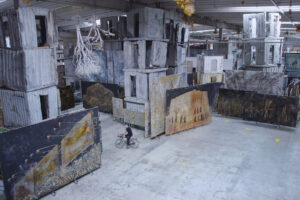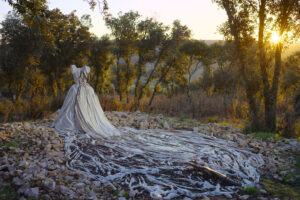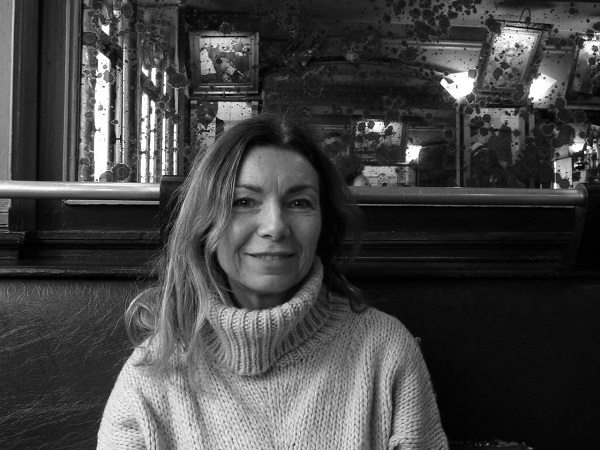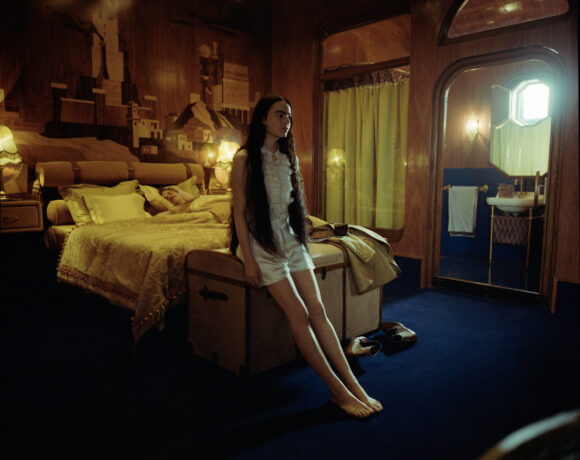Wim Wenders came back to the 76th Cannes Film Festival this year to the delight of his faithful cinéphiles with two masterpieces: “Anselm”, a documentary on the artist Anselm Kiefer, and “Perfect Days”, a film in competition shot in Japan which awarded a prize by the Jury chaired by the director Reuben Ostlund. The great German director, who had already worked with 3D in 2011 for the feature film “Pina” dedicated to the choreographer Pina Bausch, presented the world premiere of “Anselm”, a documentary shot in 3D and 6K resolution, made in more than two years with Anselm Kiefer. The 93-minute film, in this very high resolution, offers a unique and magnificent immersive experience for the viewer into the work and life of the German artist, exploring the literature, poetry, philosophy, science and religion that have profoundly influenced his career. The director followed Kiefer from Germany to France, the country where he has lived permanently for years, recounting fifty years of artistic activity in the main places where Kiefer worked. Above all, the film reveals the creative process of large installations, reflecting on the Master’s deep fascination for mythology and history.

Wim Wenders, Anselm, 2023, Germania, courtesy ANSELM © 2023, Road Movies
«Anselm Kiefer and I were both born at the end of the Second World War, he a few months before, me a few months after», Wenders declares. «We spent our childhood in a country destroyed and devastated in its image, where adults – including relatives and teachers – frantically wanted to create a future for themselves and feverishly tried to forget the past or pretend it didn’t exist. While Anselm studied law in Freiburg-im-Breisgau, I studied medicine there. We could have met then, but we both took other directions: he studied Art at the Academy and I chose a film school. But nothing is as formative as first impressions and so we had a lot in common to share». Wenders recalls that they met for the first time in 1991 when Kiefer was preparing an exhibition at the Neue Nationalgalerie in Berlin, the beginning of an acquaintance made up of good drinks and long chats, where the idea of making a film together appeared.

Wim Wenders, Anselm, 2023, Germania, courtesy ANSELM © 2023, Road Movies
The idea became real much later, when Wenders visited a large studio by Kiefer in Barjac in France and was struck by it: «The most incredible and complete topography of his work – the landscape includes various architectural constructions, numerous pavilions, underground crypts and even a large covered amphitheater. I had never seen anything like it. When I met Anselm there, it was as if we had met again in the same moment as many years ago. Soon after we met again in his current studio in Croissy near Paris and there we finally decided to make the film together» says Wenders. The film took two years to shoot in Barjac, Croissy, the Odenwald mountains where Kiefer had his first studio, his birthplace in Rastatt and the Rhine River. «3D has been a huge help in this process. I want to make a bold statement: there is no other medium in which you see so much. I am aware that this may be taken as arrogance or personal bias. However, I base myself on facts and experiences».

Wim Wenders, Anselm, 2023, Germania, courtesy ANSELM © 2023, Road Movies
Wenders then further explains how 3D is able to offer a powerful experience, which reveals much more than the two-dimensional and flat image. «3D is capable of the most amazing and immersive involvement, both physically and mentally. This language is able to create poetry». In the cast appears, in addition to Anselm Kiefer, his son Daniel Kiefer who represents him as a young man and Anton Wenders who plays him as a boy. The film recounts moments in the artist’s life with elegance and originality and thanks to shots from above with drones and the skilful direction of photography by Franz Lustig, the gigantic creations and the extraordinary use of metals and surfaces such as walls treated with fire or water. It is a fascinating artistic world that makes use of industrial means and processes.

Wim Wenders, Perfect Days, 2023, Giappone, Germania, courtesy MASTER MIND Ltd
The second film “Perfect Days”, in homage to Lou Reed’s song, was made by Wenders very quickly compared to the documentary and won the Best Actor Award for Koji Yakusho at the 2023 Cannes Film Festival. Wenders, who had won the gold Palme at Cannes with “Paris, Texas” (1987) and the Best Director Award with “The sky above Berlin” (1987), this time gives us a delicious and poetic film that reaches the hearts of audiences and critics thanks to the extraordinary presence of the Japanese actor Koji Yakusho. In the film, the actor, already internationally known for his participation in Shohei Imamura’s film “The Eel” and in “Babel” (2006) by Alejandro Gonzalez Inarritu, plays the part of an elderly and serene man who lives in Tokyo as a janitor cleaner of public toilets. The man wakes up every morning in his modest apartment full of books and boxes of photographs, begins with his routine, carefully folding the tatami in a corner of his room, observes the sky and the weather, puts on his overalls and goes to work with his beat-up van. A modest life, but visibly satisfied by the little things that the protagonist receives as precious gifts through the observation of the varied world that surrounds him in the public toilets and in the nearby park where he delights in taking photographs of the trees as they move with the wind. Komorebi in Japanese is the light that filters through the leaves of the trees and that the cleaning man, during the lunch break, captures with an old camera that he keeps in his pocket. Although nothing in particular ever happens, up to a certain point, the film keeps one in suspense and fascinates, above all due to the fact that the protagonist Hirayama is a kind and solitary type, who never speaks and arouses the curiosity to know much more about his past: among other things, he listens to excellent 80s rock music (Patti Smith, the Kinks, Lou Reed) with old audio cassettes that he jealously collects. An understated film and story written with Takuma Takasaki, with a beautiful photograph of a contemporary Tokyo that is not at all postcard-like, again signed by Franz Lustig, where the Zen character lets the spectator freely imagine a different past, given his culture and the sensitivity that leak out from everyday images. Award to actor Koji Yakusho well deserved!!
Info:

Manuela Teatini, film maker and journalist, focuses on visual arts, in particular cinema, photography and contemporary art. She has written freelance for years with VOGUE, Uomo VOGUE, ELLE and other cinema, art and new trend magazines. She is the author and director of the docufilms “ART BACKSTAGE. La passione e lo sguardo” (2017),” MASSIMO MININI. Story of a Gallerist “(2019),” GIOVANNI BOLDINI. Il Piacere. Story of the Artist” (2021) awarded at the Terra di Siena International Film Festival 2021.






NO COMMENT